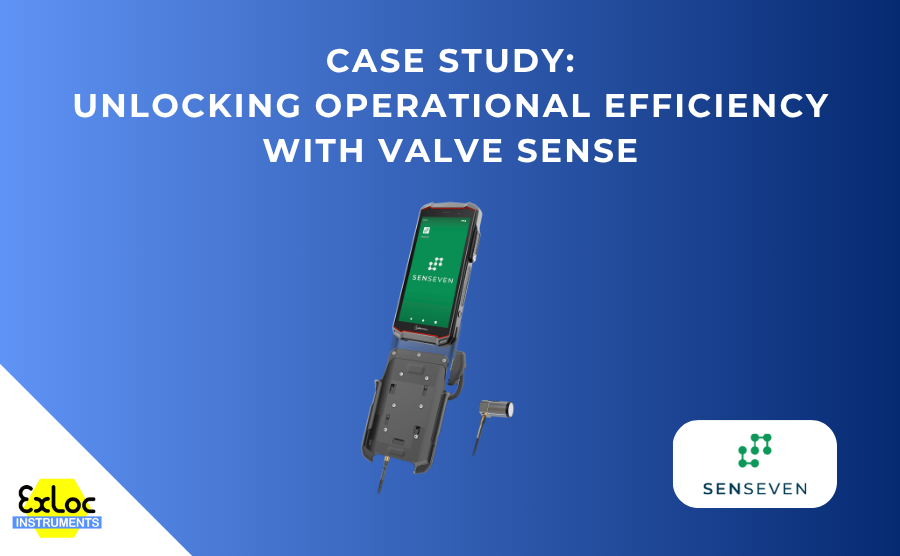Targeted valve inspections at a gas processing site reveal major cost-saving opportunities
Overview
Across the gas processing industry, minor valve leaks often go undetected—quietly contributing to product loss, unnecessary flaring, and inflated maintenance budgets. In one recent project, a gas processing facility deployed Valve Sense, the mobile valve inspection system from Senseven, to better understand leakage risks across its operation.
The results were significant. By identifying faulty valves early and avoiding unnecessary replacements, the team was able to reduce product losses, streamline maintenance, and improve asset performance without shutting down operations.
In this case, the inspection uncovered valve leaks contributing to product loss worth tens of thousands of pounds annually—demonstrating how early detection can deliver immediate and lasting financial benefits.
The Challenge
At the facility, a wide network of pressure safety valves (PSVs), control valves, and isolation valves plays a critical role in maintaining operational safety and system stability. However, like many sites with ageing infrastructure, the team faced challenges:
- Suspected leaks were difficult to pinpoint without invasive inspection
- Valve condition was often assessed based on age, not performance
- Replacing valves without clear evidence of failure was costly and inefficient
Routine maintenance often involved broad valve replacement programmes, which risked wasting resources on valves that were still operating correctly, while potentially overlooking those beginning to fail.
The Solution: Valve Sense
The team introduced Valve Sense, a compact, mobile inspection system designed to detect internal valve leaks acoustically—without interrupting operations or disassembling equipment.
With support from Exloc Instruments UK Ltd, Valve Sense was used to assess a representative selection of valves across multiple systems, including flare lines, condensate recovery loops, and gas routing manifolds.
The device allowed technicians to:
- Inspect valves in situ
- Receive immediate results on site
- Prioritise repairs based on data, not assumptions
What Was Found
The inspection campaign revealed that:
- Several valves showed signs of internal seat leakage, previously undetectable by external checks
- A subset of pressure safety valves were contributing to low-level flare activity during normal operation
- A few bypass valves were allowing unintentional flow, impacting system pressure and equipment cycling
The results were logged and integrated into the site’s maintenance planning system, creating a new benchmark for performance-based valve servicing.
The Impact
By using Valve Sense to guide maintenance decisions:
- The team focused only on valves with verified leakage
- Unnecessary replacements were avoided, reducing parts and labour costs
- System performance improved due to the elimination of background losses
- Flaring activity was brought closer to expected baseline level
The process not only reduced operational waste, but also helped strengthen environmental reporting and regulatory compliance.
Conclusion
This case highlights the growing value of non-invasive valve inspection in complex gas processing environments. Valve Sense enabled engineers to act on real data, extending asset life and reducing both direct and indirect operational costs.
Based on gas value estimates and maintenance records, the facility calculated that continuous minor leaks from just three valves were leading to an average loss of approximately £120–£150 per day in product value—equating to nearly £45,000 per year. Additionally, by avoiding the blanket replacement of nine fully functional valves (each typically costing around £1,200 in parts and labour), the site saved an estimated £10,800 in avoided maintenance expenses. The entire Valve Sense inspection system delivered a full return on investment within the first inspection cycle.
For operators looking to move beyond time-based maintenance, tools like Valve Sense offer a practical, engineer-friendly route into predictive maintenance—backed by fast results, easy deployment, and clear ROI.
Exloc Instruments UK Ltd supports Valve Sense integration across a range of process industries, helping customers unlock more value from existing infrastructure with minimal disruption.
Contact Exloc today for more information!


